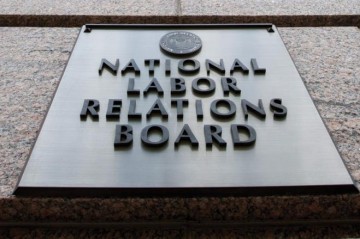Editor’s Note – As SUA, along with a large amount of other internet sites have been reporting, this Administration has been routinely circumventing the Constitution in so many ways. From Executive Orders, to Signing Statements, selective enforcement of the law, illicit self-proclaimed ‘recess appointments’, and ramming legislation by employing nefarious methods in the Senate and House, the Obama team has constantly run rampant over the will of the people. There hasn’t even been a budget in four years.
Now, finally, the courts have weighed in and declared unanimously that at least one of these end-runs was in fact unconstitutional. Early responses from the administration indicate they are willing to fight all the way to the Supreme Court. This is a legal move of course, but it just goes to show the arrogance of this administration. They lost one, very badly, unanimously, yet they are going to spend all that time and effort to continue the fight. Why, because they don’t care how they get their way, they will say and do anything.
Unfortunately, the most egregious transgression, PPACA, or ObamaCare was declared ‘valid’ by SCOTUS. A fight not yet over we hope.
This will not be the last loss this administration will endure however as more cases move forward, but the damage has already been done – people and businesses have lost greatly. How do they get their value and names back from the abyss created by appointing people to posts who made gross errors in decisions regarding labor and business?
In its individual circumstance it may seem trivial, but in totality, all these end-runs have amassed a great deal of harm to the people. It is likely getting very busy at Boeing’s law offices now – a likely law suit could cost the tax payers a great deal, so its a double whammy – all from an illegal move through ideologically driven chicanery as practiced by the most anti-constitutional characters ever.
Get ready folks, more is sure to come.
Obama recess appointments unconstitutional, court
By Stephen Dinan – The Washington Times
In a case freighted with major constitutional implications, a federal appeals court on Friday overturned President Obama’s controversial recess appointments from last year, ruling he abused his powers and acted when the Senate was not actually in a recess.
The three-judge panel’s ruling is a major blow to Mr. Obama. The judges ruled that the appointments Mr. Obama made to the National Labor Relations Board are illegal, and the board no longer has a quorum to operate.
But the ruling has even broader constitutional significance, with the judges arguing that the president’s recess appointment powers don’t apply to “intrasession” appointments — those made when Congress has left town for a few days or weeks.
The judges signaled the power only applies after Congress has adjourned sine die, which is a legislative term of art that signals the end to a long work period. In modern times, it means the president could only use his powers when Congress quits business at the end of a year.
“The dearth of intrasession appointments in the years and decades following the ratification of the Constitution speaks far more impressively than the history of recent presidential exercise of a supposed power to make such appointments,” the judges wrote.
“Recent presidents are doing no more than interpreting the Constitution. While we recognize that all branches of government must of necessity exercise their understanding of the Constitution in order to perform their duties faithfully thereto, ultimately it is our role to discern the authoritative meaning of the supreme law.”
The case is likely to end up before the Supreme Court, and it turns on the definition of what the Constitution means when it says “recess.”
Last January Mr. Obama named union lawyer Richard Griffin and Labor Department official Sharon Block, both Democrats, and a Republican, NLRB lawyer Terence Flynn, to the labor board using his recess powers. He also named Richard Cordray to head the new Consumer Financial Protection Bureau, using those same powers.
Noel Canning, a bottling company, sued the NLRB, arguing that a rule issued by the new board was illegal since the recess appointments were unconstitutional. Senate Republicans, led by Minority Leader Mitch McConnell, joined in the suit.
The appeals court panel, which sits in Washington, D.C., was skeptical of Mr. Obama’s case during oral argument in early December, with Chief Judge David B. Sentelle and Judge Thomas B. Griffith peppering the administration lawyers with questions.
The Constitution gives the president the power to nominate judges and executive branch officials, but the Senate must vote to confirm them before they take office. Article II, Section 2 of the Constitution grants the president powers “to fill up all vacancies that may happen during the recess of the Senate.”
Those powers have produced centuries of give-and-take, with senators regularly slow-walking nominees and the White House looking for ways to get its way — including the recess appointment.
Mr. Obama’s move, though, appeared to break new ground by acting at a time when the Senate was meeting every third day, specifically to deny him the chance to make appointments.
The problem is the word “recess” has several meanings in legislative-speak. It can mean a short break during the day, it can mean a break of days or weeks for a holiday, or it can mean the end of a yearly session.
The president argued that even though the Senate was convening every three days, the pro forma sessions didn’t allow any business, and nearly every senator was absent from the chamber, signaling that the Senate wasn’t able to perform its confirmation duties and should be considered essentially in recess.
His opponents had warned that if Mr. Obama’s stance prevailed, then presidents could make appointments when the Senate takes its recess for weekly party caucus lunches.
The judges on Friday ruled that the only clear bright line is when the Senate recesses at the end of the year.
Follow us: @washtimes on Twitter

